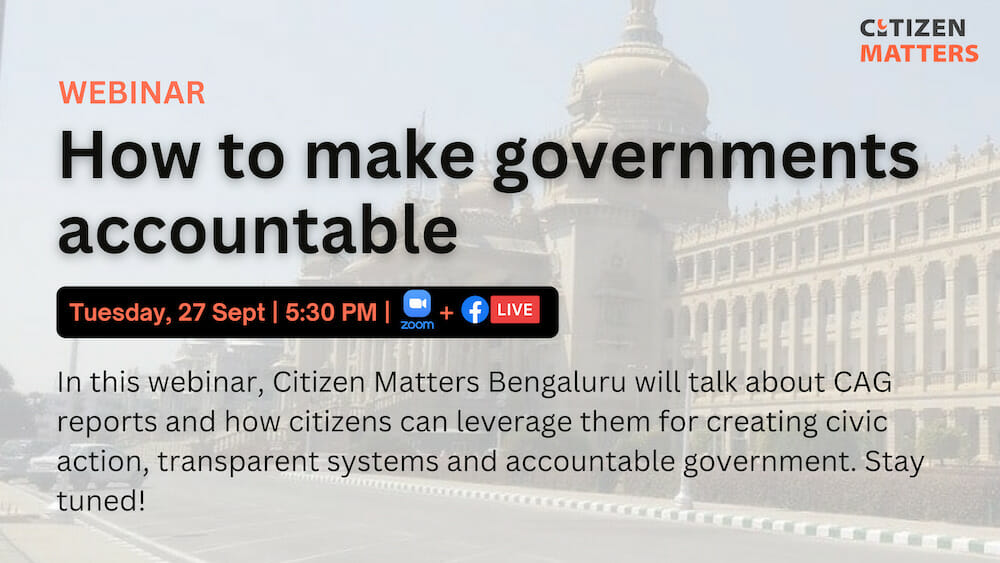An informed citizenry is the hallmark of a mature democracy. Hence, institutions or mechanisms that empower citizens, by providing feedback on the working of government, are essential pillars of democracy.
Citizen Matters has published a series of explainers by experts from the Comptroller and Auditor General of India (CAG), India’s statutory watchdog agency. It is responsible for the performance audit of government functions/departments.
CAG reports have covered a wide range of subjects: health, education, road safety, toll, guidance value of property, mining, construction workers’ welfare, etc. The articles focus on the performance of overall state finances with respect to State PSUs, Departments, Autonomous Bodies, etc. The receipt of grants from the Government has also been detailed.
Read more: BBMP pours 90 lakhs down the incomplete drain
All these reports have been tabled in the assembly and are in the public domain.
- Which are the reports that are relevant to us, as active citizens of Bengaluru?
- What can we learn from these reports?
- What happens to CAG’s recommendations and how to track what happens on the ground through action taken reports?
To discuss this, Citizen Matters, Bengaluru chapter, is organising a webinar, titled ‘How to make governments accountable?’, on September 27th, Tuesday, at 5.30 pm. The webinar will be followed by a brief Q&A session open to participants.

Read more: Bengaluru lacks buffer zones, raja kaluves, data and will to protect lakes: CAG
Event details
Event Title: How to make governments accountable
Date: September 27, 2022, Tuesday
Time: 5:30 pm
Register here: https://bit.ly/CMwebinarregister
(The webinar will be followed by a brief Q&A session open to participants.)
Speakers:
- E P Nivedita – Nivedita is a civil servant in the Indian Audit and Accounts Service (IAAS) – Batch of 1993
- Himanshu Upadhyaya – Assistant Professor at Azim Premji University
- Anjali Saini – Member of Whitefield Rising
- T R Gopalakrishnan – Consulting Editor, Citizen Matters – moderator
Though rains & Storm Water Drain annual feature has become common and SWD impact has been brought out neatly by CAG in its Annual Report and has created havoc to general public.. the subject matter drains as the time passes